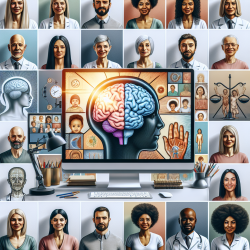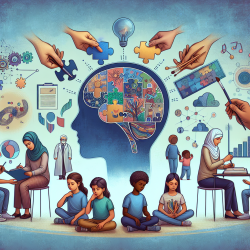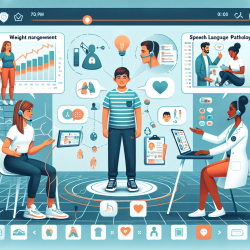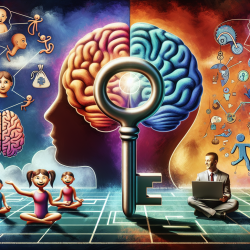Introduction
In the quest to enhance therapeutic outcomes for children, understanding the neurobiological effects of different treatment modalities is crucial. A recent study published in the Brazilian Journal of Medical and Biological Research provides valuable insights by comparing the neurobiological impacts of Attribution Retraining Group Therapy (ARGT) with those of Selective Serotonin Reuptake Inhibitors (SSRIs) in treating major depressive disorder (MDD), generalized anxiety disorder (GAD), and obsessive-compulsive disorder (OCD).
The Study: A Comparative Analysis
The study involved 129 participants, divided into two groups: one receiving ARGT and the other SSRIs, over an 8-week period. The research aimed to assess changes in symptomatology and plasma levels of serotonin, norepinephrine, cortisol, and adrenocorticotropic hormone. Findings indicated significant symptom reduction in both groups, with distinct neurobiological changes observed.
Key Findings
- Symptom Reduction: Both ARGT and SSRIs significantly reduced symptoms in MDD, GAD, and OCD patients.
- Cortisol Levels: ARGT was associated with a significant reduction in plasma cortisol levels, suggesting modulation of the hypothalamus-pituitary-adrenal (HPA) axis.
- Serotonin Levels: SSRIs led to increased plasma serotonin levels, highlighting their role in up-regulating serotonin pathways.
Implications for Practitioners
For practitioners, these findings underscore the importance of considering neurobiological effects when selecting therapeutic interventions. ARGT offers a non-pharmacological approach that not only reduces symptoms but also positively influences cortisol levels, potentially normalizing HPA axis function. This could be particularly beneficial for children, where non-invasive and psychologically supportive therapies are preferred.
Encouraging Further Research
While this study provides valuable insights, further research is needed to explore long-term effects and the potential for integrating ARGT with other therapeutic modalities. Practitioners are encouraged to stay informed about emerging research to continually refine their approaches and optimize outcomes for their young clients.
Conclusion
Understanding the neurobiological underpinnings of therapy can significantly enhance treatment efficacy. By integrating data-driven insights from studies like this, practitioners can make informed decisions that lead to better outcomes for children. To delve deeper into the original research, please follow this link: Comparison of the neurobiological effects of attribution retraining group therapy with those of selective serotonin reuptake inhibitors.










